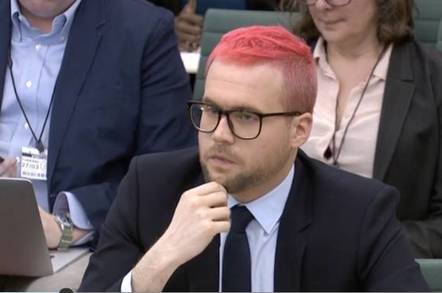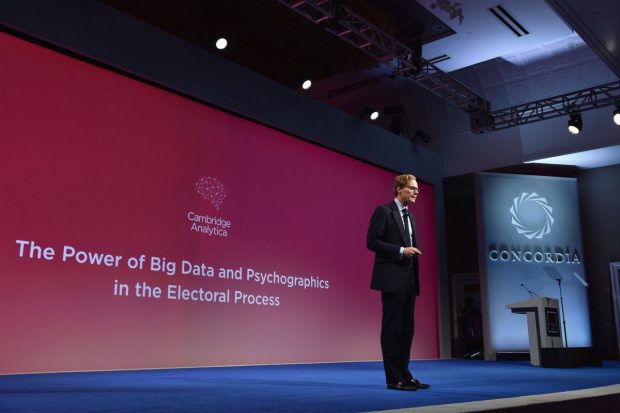Smith Oduro-Marfo
The recent revelations about Cambridge Analytica’s activities raise questions about the implications for privacy rights and democracy. However, there have been recent allusions to colonialism, too. Describing Cambridge Analytica’s connection to African politics during his appearance before the U.K. House of Commons Digital, Culture, Media and Sport Committee, Christopher Wylie – the Canadian whistleblower and former employee of Cambridge Analytica (CA) – mentioned it was “an example of what modern day colonialism looks like.” This portrayal, as expected, has subsequently enjoyed major traction on social media and news cycles.
 Only a few words carry a similar historical, political and ideological weight as ‘colonialism.’ The introduction of the concept into any conversation at all elevates the complexity of the discourse. Thus by likening CA’s activities to colonialism, Wylie has magnified the potential dangers of the operations of outfits like Cambridge Analytica and linked them to an increasingly unpopular and unconscionable concept and practice. This colonial frame may make people sit up and take the episode more seriously, but the colonial talk obfuscates the reality that, just as in the U.S. and U.K., CA was contracted and enabled by African politicians.
Only a few words carry a similar historical, political and ideological weight as ‘colonialism.’ The introduction of the concept into any conversation at all elevates the complexity of the discourse. Thus by likening CA’s activities to colonialism, Wylie has magnified the potential dangers of the operations of outfits like Cambridge Analytica and linked them to an increasingly unpopular and unconscionable concept and practice. This colonial frame may make people sit up and take the episode more seriously, but the colonial talk obfuscates the reality that, just as in the U.S. and U.K., CA was contracted and enabled by African politicians.
To justify his assertion, Wylie explained that CA “goes around the world and undermines civic institutions of, you know, countries that are struggling to develop those institutions…You have a wealthy company from a developed nation going into an economy or democracy that is still struggling to get, you know, its feet on the ground and taking advantage of that to profit from that.”
Yes, this practice is bad. But it is not colonialism.
Moreover, CA has been more successful in the U.K. – Brexit – and the U.S. – election of Trump – than on the African continent, but no one has called that colonialism. Why then does the conversation about Africa have to be within the context of colonialism? On a continent where formal privacy protection measures are still budding, such sensationalism could keep eyes off the ball at a great cost.
According to Mike Turnbull, the Managing Director of the political division of SCL Group (CA’s parent company), CA ran the 2013 and 2017 campaigns of Uhuru Kenyatta, president of Kenya; “rebranded the entire party [Jubilee] twice”, wrote the manifesto, did research, analysis, and messaging. CA has been accused of resorting to fake news and commentaries attacking opponents of Kenyatta during the campaign. In Nigeria, CA is accused of organizing anti-elections rallies and using information from hacking the then opposition candidate, Muhammadu Buhari’s email account in favour of then President, Goodluck Jonathan. These will not be markedly different from CA’s modus operandi in the Global North. 
Again, anybody who knows about African elections knows about the deep-seated effects of ethnic and religious cleavages. So far what CA is reported to have done (sourced and enabled by local politicians) in Nigeria and Kenya has been to take advantage of these cleavages and institutional challenges. This opportunism is what many African politicians have long thrived on and CA was brought on board to help sustain the practice. The practice has always been dangerous and must be condemned, but the colonialism talk is an over-stretch and distracting as it marginalizes the responsibilities of the African political elite. It is fascinating that Nigel Farage and Steve Bannon will be discussed as crafty persons and given full responsibility in the discussion of CA but African politicians are virtually treated as passive and compliant zombies.
As has been pointed out by others, we should not grant CA more agency in Africa than it has earned, just in the bid to show the outfit as dangerous. It is more useful for civil society in Africa to highlight the role played by their local politicians and push for limitations on the extent the former can go during elections.
Who hired and paid Cambridge Analytica in Kenya and Nigeria? What were the specific breaches of data privacy rights of Africans? Which African officials and offices provided which kinds of information and access to CA without following due process? What will happen to these African enablers of Cambridge Analytica’s operations? How do we ensure that voter analytics companies and those who contract them are continuously checked? These are the actual questions. The colonialism tag should not distract us from the fact that in various African and Asian countries, CA was hired, paid and enabled by local politicians. They must answer their own questions and not be offered the refuge of convenient colonial talk.
Originally posted on Ipolitics